
In certain patients with ESR1-mutant breast cancer, time to next treatment was slightly higher with Orserdu versus PFS in a phase 3 trial.

In certain patients with ESR1-mutant breast cancer, time to next treatment was slightly higher with Orserdu versus PFS in a phase 3 trial.

Patients with early breast cancer who are older may experience high-grade immune-related side effects after receiving immune checkpoint inhibitors.

Treatment with imlunestrant either with or without Verzenio was shown to improve progression-free survival in some with ER-positive, HER2-negative advanced breast cancer after endocrine therapy.
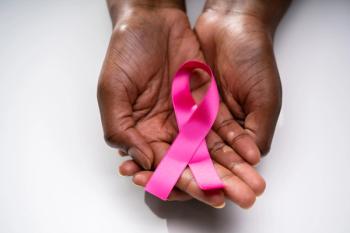
Receiving immediate surgery was associated with a reduction in local recurrence of breast cancer in elderly patients versus delaying surgery.

Adjuvant Lynparza remains beneficial for patients with BRCA1/2 mutation–positive, HER2-negative high-risk breast cancer, study results have shown.

Data from the phase 3 DESTINY-Breast06 trial were presented during the 2024 San Antonio Breast Cancer Symposium.

Findings from the phase 1 SERENA-1 study were presented at the 2024 San Antonio Breast Cancer Symposium.

Experts discussed what other information is needed to understand how best to use Kisqali in treating patients in the adjuvant setting with early breast cancer.
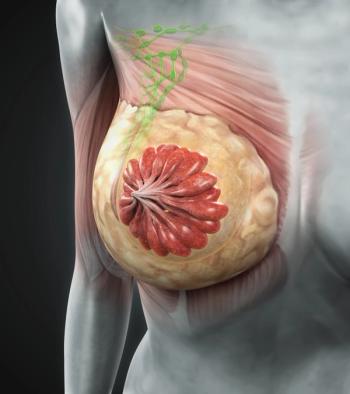
Dr. Heather Parsons of Dana-Farber Cancer Institute explains how a liquid biopsy could help patients with breast cancer and their care teams learn vital information.
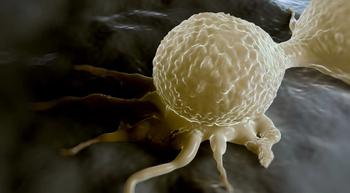
Patients with chemotherapy-naïve, HER2-low hormone receptor-positive metastatic breast cancer experienced antitumor activity via combination therapy with Arimidex or Faslodex plus Enhertu, according to data from the phase 1b DESTINY-Breast08 trial.

Data showed that metabolic and genetic factors could contribute to aggressive tumors in Latin American and non-Hispanic White patients with breast cancer.

CURE® recently covered the San Antonio Breast Cancer Symposium. In case you missed it, here is some news that came out of the conference that patients should know about.

Presurgical Keytruda Plus Chemo, Postsurgical Keytruda Continued to Show Benefits in in patients with high-risk, early-stage triple-negative breast cancer.

Opdivo and non–anthracycline containing chemotherapy before surgery produced promising pathologic complete response rates regardless of whether Opdivo was administered before or during treatment with carboplatin and paclitaxel in patients with stage 1 to 2B triple-negative breast cancer.
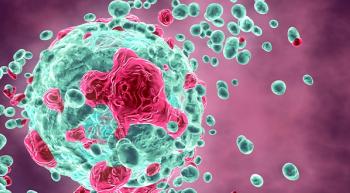
Preliminary study results examining the bispecific antibody, CDK4/6 inhibitor and hormone therapy combination in patients with advanced breast cancer were presented at SABCS.

Results from the ADAPTcycle trial found that endocrine therapy plus ovarian suppression can generate high response rates in patients with HR-positive, early breast cancer, regardless of age.

A recent phase 3 APTneo Michelangelo trial added Tecentriq to neoadjuvant Herceptin plus Perjeta and chemotherapy which did not lead to a statistically significant improvement in pathologic complete response in patients with HER2-positive operable breast cancer.

Kadcyla outperformed Herceptin regarding overall- and invasive disease-free survival in patients with HER2-positive early breast cancer that still had remaining invasive disease after undergoing neoadjuvant therapy.
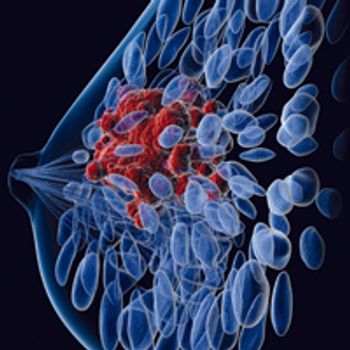
Patients with ER-positive, HER2-negative, ESR1-mutant advanced breast cancer experienced improvements in progression-free survival when being treated with Orserdu, study results showed.

Findings were presented at the 2023 San Antonio Breast Cancer Symposium from a study investigating real-world patients who received Enhertu for advanced breast cancer.

A triple-negative breast cancer survivor discussed disparities she faced when undergoing cancer care.

Dato-DXd (datopotamab deruxtecan) as a form of treatment compared to chemotherapy resulted in improved progression-free survival for patients with previously treated hormone receptor-positive/HER2-negative inoperable or metastatic breast cancer.

The introduction of Tukysa to Kadcyla emtansine significantly improved progression-free survival versus placebo plus Kadcyla in patients with previously treated HER2-positive metastatic breast cancer.

Race demonstrated differences in overall survival outcomes, but not for three-year recurrence-free survival in patients with HR-positive, HER2-negative breast cancer, according to data.
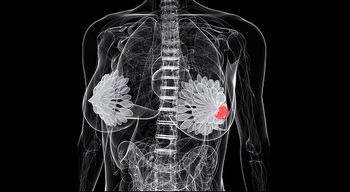
The combination of Keytruda to neoadjuvant chemotherapy, followed by Keytruda in combination with endocrine therapy improved pathologic response rates for patients with early-stage, high-risk, estrogen receptor (ER)–positive/HER2-negative breast cancer.

Research is underway on the immune-stimulating antibody conjugate BDC-1001’s effectiveness against HER2-positive cancers when combined with Perjeta, according to data presented at SABCS.

Patients with HR-positive, HER2-negative breast cancer tended to have longer health-related quality of life and improved outcomes with Truqap plus Faslodex, research showed.

The use of artificial intelligence to detect sentinel lymph nodes in patients with breast cancer may be able to save time and reduce costs as compared with immunohistochemistry.

Patients with HR-positive HER2-negative advanced breast cancer, including elderly patients, derived a progression-free and overall survival benefit with Kisqali plus endocrine therapy compared with placebo plus endocrine therapy.
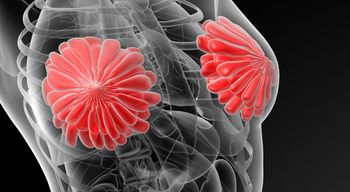
Recent study results showed that patients with advanced HER2-positive breast cancer lived longer without disease progression when treated with Enhertu compared to when treated with Xeloda.